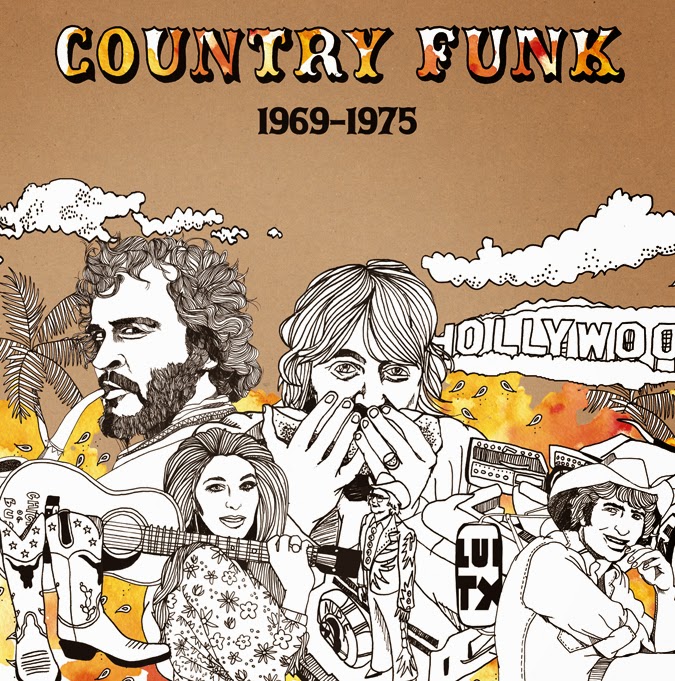What is
country funk? Well that is the first question I asked before I had even
listened to a single track off this 2012 compilation. As a style label, country
funk has been coined years later probably by the people who conceived this
compilation, and musically speaking is meant to encompass a range of different styles
including gospel, blues, county, and roots rock which many American artists in
the late-60s and early-70s were experimenting with and blending together in
their music. At this time, artistic experimentation in music was rife, with
many artists mixing things up and crossing over into different musical
territories, something you can certainly here on this album with elements of
country, gospel and funk featuring within a single track. So although country
funk is not exactly a precise stylistic term musically, and I would argue has
been used more so as a selling point for this compilation, the term does a nice
job of describing the types of musical merging’s that were taking place in the
States during this period.
Aesthetically
I would also say the music termed country funk is linked together by the fact
that the songs which fall under this umbrella term as witnessed by the material
on this compilation tend to have groove, boogie, and an underlying rawness
about them. I would say it is music from the country but with the feel of the
city. Spiritually I also think the themes of the songs are coming from a
southern perspective, and you can certainly see that in some of the song titles
on this album, with things like “Georgia Morning Dew”, “Lucas Was a Redneck”
and “Bayou Country”. As for the artists that feature, well they are not big
names by any stretch, something that I actually find a good thing and is one of
the reasons I find these sorts of stylistically-based compilations quite
intriguing, as I come to listen with no real pre-conception of the artists
themselves and what sort of music they play. This in itself can often make the
listening experience that much more enjoyable. With this in mind, just some of
the standouts for me on this compilation included Johnny Adams “Georgia Morning
Dew” which is a sort of slide guitar country blues, Bobby Charles “Street
People” which has a Band feel to it, the playful kick of Larry Jon Wilson’s “Ohoopee
River Bottomland”, the southern soul of Bobbie Gentry’s “He Made a Woman Out of
Me”, and finally a storming blues cover of Dr John’s “Walk on Gilded Splinters”
by Johnny Jenkins.
This
compilation for me represents a melting pot of those Southern styles of music
that were often mixed and moulded together into completely new sounds, sounds
which came to dominate the music scene of the late 60s and into the 70s. Artists
might have been country at heart, but were filling to throw in a funk rhythm or
bass line, or they might have been a gospel singer but the country came
calling. This sort of musical freedom reigned supreme for a slight moment in
time there, and for a fleeting second was the norm in the music industry until
the corporates of LA came calling and one had to be pigeon-holed into a box to
be sold. It is hard to pin country funk down, let alone describe it, so perhaps
in conclusion it is best to simply acknowledge country funk for what it represents,
and that is music which is fun, playful, and experimental. So credit to the
folks at Light in the Attic Records for releasing this neat little set, and I certainly
look forward to hearing volume two “Country Funk 1967-1974” which itself has
just been released.
B+
- Sam


